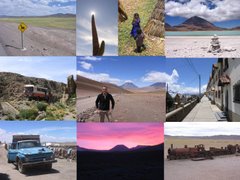 John Howard (left), and a ridiculous looking baffoon in a suit (right).
John Howard (left), and a ridiculous looking baffoon in a suit (right). 
http://www.guardian.co.uk/australia/story/0,,2217015,00.html
 Kevin Rudd: Do you think he's trying to get a subtle message across in this picture?
Kevin Rudd: Do you think he's trying to get a subtle message across in this picture? John Howard (left), and a ridiculous looking baffoon in a suit (right).
John Howard (left), and a ridiculous looking baffoon in a suit (right). 
 Kevin Rudd: Do you think he's trying to get a subtle message across in this picture?
Kevin Rudd: Do you think he's trying to get a subtle message across in this picture? I'll only mention it once, but the weather has been rather fantastic most of the time since I've been back. See. Mentioned it. Now its out the way. Will try not to mention it again.
I'll only mention it once, but the weather has been rather fantastic most of the time since I've been back. See. Mentioned it. Now its out the way. Will try not to mention it again.  fair amount of nostalgia. Equally, thoughts of that lovely flat made me determined to find somewhere homely to live for the next year too. And perhaps somewhere a bit handier for the pubs and city centre this time.
fair amount of nostalgia. Equally, thoughts of that lovely flat made me determined to find somewhere homely to live for the next year too. And perhaps somewhere a bit handier for the pubs and city centre this time.


 managed to avoid dressing up, but didn't avoid the karaoke. Apologies to Keith - i really did think a Sean Paul duet would be a good idea -never mind that he doesn't even sing in English...
managed to avoid dressing up, but didn't avoid the karaoke. Apologies to Keith - i really did think a Sean Paul duet would be a good idea -never mind that he doesn't even sing in English...

Two International Financial Centre. This prosaically named building was being built when i was last in Hong Kong in 2002. It became the third highest building in the world, but has since been overtaken by several others, not least the Burj Dubai which, incredibly, will (when completed) be twice as tall.
It's been 5 years since I first visited Hong Kong, and I wondered how much this stellar city would have changed in that time, and whether my high expectations from that first visit would be met.
I had three days in the former British colony and as well as testing my previous experience, I planned to see some of the sights I’d missed, first time around.
Sculpture in downtown Hong Kong.
Hong Kong may be the fastest changing city on earth. When I was last there it had been 5 years since Britain’s 99 year lease had expired and the general consensus was that Hong Kong’s economic and social transformation had been unchecked by Chinese stewardship. A further 5 years down the line and I can personally confirm that Hong Kong is still a whirlwind of development.
For example, when I was last there, they were busy building the third highest building in the world. That building was finished a few months after I left. But, impressive as it is, its already in d anger of being forgotten, as already a taller building is under construction in Kowloon and several still-taller buildings are in the planning stages.
anger of being forgotten, as already a taller building is under construction in Kowloon and several still-taller buildings are in the planning stages.
The largest seated Buddha in the world on Lantau Island, HK.
The transport system is also something that never stands still. The new airport is the product of one of the largest land-reclamation schemes ever. Having been to the even-newer Bangkok International airport, I feel that Hong Kong’s is no longer the world’s most impressive (in my limited experience). However, HK’s public transport system is something Bangkok can only dream of. The MTR seems to operate perfectly and effortlessly with stacks of spare capacity whenever I used it. And officials in Hong Kong have a greater appetite for public works even than those in Japan. The latest plan is for an extension to the train system to link Kowloon with Macau. At present Macau is an hour’s journey away by speedboat. This would be the largest bridge of its type in the world.
This development comes at a cost though. China’s environmental record has come under considerable scrutiny in the last 18 months as record growth has resulted in record levels of pollution and a move towards some unenviable records. In particular, climate-change sceptics in the US point to China’s progress towards the title of greatest contributor to global warming as an excuse for foot-dragging on reducing domestic carbon emissions (China will still be well behind the US on emissions per head).

Despite its low levels of industrial activity, Hong Kong is a significant contributor to China’s environmental footprint. In addition, the colony also has a significant environmental impact at the local level. This was something I would see myself on my second day in Hong Kong.
The Chinese White Dolphin is one of the most endangered dolphin species in the world. I took a trip out into the harbour on a dolphin spotting tour to try to see these beautiful animals, which - in spite of the name - are actually tinged pink. You can see from the pics that we got very close to the dolphins and it was a really exciting trip, although we had to wait an eye-straining 90 minutes before we spotted the first one. The dolphins played around the boat, usually at distance but sometimes swimming close. Given the huge volume of ferry, freight and sight-seeing craft in the harbour, its amazing that the animals survive at all, and that they will come so close to boats.


 Attractive sandy swimming beach on Cheung Chau island, 30 minutes from HK by ferry. HK's mass of people and activity has an impact on the environment for some distance around.
Attractive sandy swimming beach on Cheung Chau island, 30 minutes from HK by ferry. HK's mass of people and activity has an impact on the environment for some distance around.
Coincidentally, I watched the Al Gore film "An Inconvenient Truth" on the flight to Hong Kong. If you haven't seen it, I'd implore you to make every effort to watch it. Though it has come in for some criticism for a few of the things it claims, it is an incredibly compelling film and hopefully one that will have a significant impact on the way politicians in particular view the environment and their moral responsibilities. It just so happens that, as I write this, there are only 24 hours before Australians go to the polls in the national elections. Surveys suggest that the former global warming sceptic and enivronmentalists nightmare John Howard will be defeated by the more left-leaning (but still quite right wing compared to UK politics) Kevin Rudd. But more on that in another update.

 ng the buildings of Edinburgh and then the Forth Bridges.
ng the buildings of Edinburgh and then the Forth Bridges.  part of Scottish folklore – and a hero to rival James McFadden – but while Smeato and friends’ actions are also a source of pride for Scotland, the re-envigorated security measures at Edinburgh airport were more a signal of the negative indirect impact terrorism can have, whether their direct actions are successful or not.
part of Scottish folklore – and a hero to rival James McFadden – but while Smeato and friends’ actions are also a source of pride for Scotland, the re-envigorated security measures at Edinburgh airport were more a signal of the negative indirect impact terrorism can have, whether their direct actions are successful or not.  e home a week early. I thought I’d rather leave it as a surprise than phone from Heathrow.
e home a week early. I thought I’d rather leave it as a surprise than phone from Heathrow.
 Front page from the book
Front page from the book On Monday the 27th of August I arrived back in Scotland from Capetown, after 360 days on the road. It's been great to spend time with family and friends in the last three weeks after so long away. It was also good to have some time to think over the trip, the places visited and the people met.
On Monday the 27th of August I arrived back in Scotland from Capetown, after 360 days on the road. It's been great to spend time with family and friends in the last three weeks after so long away. It was also good to have some time to think over the trip, the places visited and the people met.
 Back page from the book
Back page from the book





